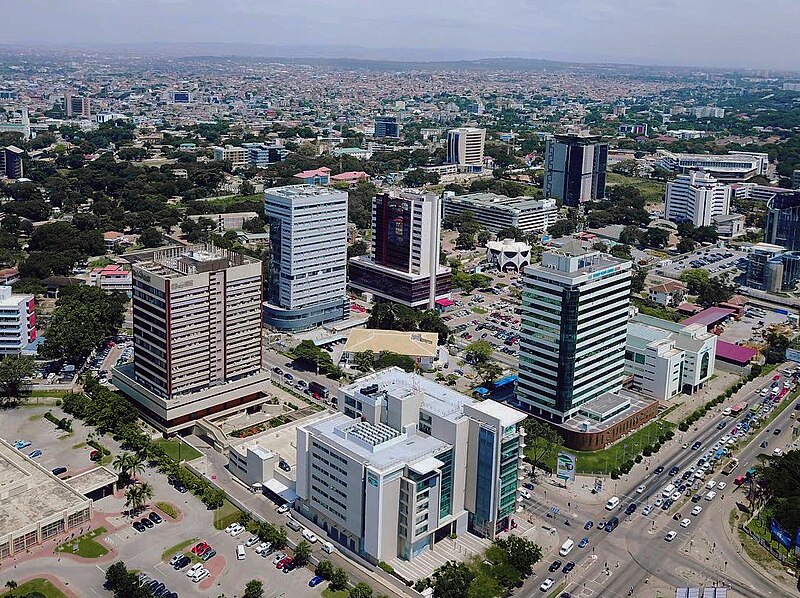Introduction
Elevators and lifts have become an essential part of modern infrastructure in Ghana, playing a crucial role in commercial buildings, residential apartments, hotels, and industrial facilities. With urbanization on the rise, more people are embracing vertical transportation as an efficient and safe means of movement within buildings. Whether you're a property developer, business owner, or simply curious about elevators, this beginner's guide will provide you with a comprehensive understanding of elevators and lifts in Ghana.
Understanding Elevators and Lifts
Elevators and lifts are vertical transportation systems designed to carry people or goods between floors of a building. They are powered by electric motors and operate using various mechanisms, including hydraulic systems, traction cables, and counterweights.
Types of Elevators and Lifts
- Passenger Elevators - These are designed to transport people in residential buildings, offices, malls, and hotels.
- Freight Elevators - Used for carrying heavy loads, these are commonly found in warehouses, factories, and shopping centers.
- Hydraulic Elevators - Operate using hydraulic pistons and are suitable for low-rise buildings.
- Traction Elevators - Use steel ropes and counterweights for movement, ideal for mid-to-high-rise buildings.
- Home Lifts - Compact elevators designed for private residences to enhance accessibility and convenience.
- Dumbwaiters - Small freight elevators used to transport items such as food and laundry in restaurants and hotels.
- Service Elevators - Used by staff in hotels, hospitals, and commercial buildings for transporting goods and personnel.
- Panoramic Elevators - Feature glass enclosures for aesthetic appeal and are commonly used in malls and office buildings.

The Importance of Elevators in Ghana
Ghana's rapid urbanization has led to increased demand for high-rise buildings, making elevators a necessity rather than a luxury. Here are some reasons why elevators and lifts are essential:
- Accessibility - Elevators make buildings more accessible for the elderly, disabled, and people with mobility issues.
- Convenience - They provide a quick and efficient way to move between floors, especially in busy commercial spaces.
- Safety - Modern elevators come with advanced safety features, ensuring reliable operation.
- Space Efficiency - Lifts help maximize space utilization in buildings by reducing the need for wide staircases.
- Energy Efficiency - New elevator technologies incorporate energy-saving features that contribute to sustainability.
Regulations and Standards for Elevators in Ghana
The installation and maintenance of elevators in Ghana must comply with international and local safety standards. Some key regulations include:
- Ghana Standards Authority (GSA) Regulations - Ensures that elevators meet safety and operational requirements.
- International Building Code (IBC) - Guides the design and installation of elevators in new constructions.
- Occupational Health and Safety Standards - Protects workers and users from potential hazards.
- Maintenance and Inspection Requirements - Elevators must be regularly inspected and maintained by certified professionals to ensure safe operation.
Choosing the Right Elevator for Your Building
Selecting the right elevator depends on several factors, including building height, usage, capacity, and budget. Here are some steps to help you make the right choice:
- Assess Your Needs - Determine whether you need a passenger, freight, or home lift.
- Consider Capacity and Speed - Choose an elevator that meets your traffic demands and operational efficiency.
- Check Safety Features - Ensure the elevator has emergency brakes, backup power, and alarm systems.
- Look for Energy-Efficient Models - Opt for elevators with energy-saving features to reduce operational costs.
- Work with a Trusted Elevator Supplier - Partner with a reputable company for installation, maintenance, and after-sales support.
Elevator Installation and Maintenance in Ghana
Proper installation and maintenance are crucial for the longevity and safety of elevators. Here are key considerations:
- Hiring a Certified Elevator Installer - Ensure your elevator is installed by a licensed and experienced professional.
- Routine Maintenance - Regular inspections and servicing help prevent breakdowns and ensure smooth operation.
- Emergency Preparedness - Buildings should have an emergency response plan in case of elevator malfunctions.
- Upgrading Older Systems - Modernizing outdated elevators improves efficiency and safety.

Top Elevator Brands Available in Ghana
Several international and local brands supply elevators in Ghana, including:
- Otis Elevator Company
- KONE Elevators
- Schindler Elevators
- Thyssenkrupp Elevators
- PE Lifts (Local Ghanaian brand providing customized lift solutions)
Cost of Elevators in Ghana
The cost of elevators varies based on type, brand, and specifications. Some key factors influencing pricing include:
- Elevator Type (Passenger vs. Freight)
- Building Height (Low-rise vs. High-rise)
- Features and Technology (Basic vs. Smart Elevators)
- Installation Complexity
- Maintenance Costs
On average, the price of a standard passenger elevator in Ghana ranges from $10,000 to $50,000, depending on the specifications.
Conclusion
Elevators and lifts have become indispensable in Ghana’s growing infrastructure landscape. Whether for residential, commercial, or industrial use, choosing the right elevator enhances accessibility, efficiency, and safety. By understanding the different types of elevators, regulatory requirements, and maintenance needs, you can make an informed decision when investing in a lift system.
If you're looking for expert guidance and reliable elevator solutions in Ghana, PE Lifts is here to help. Contact us today for customized and affordable elevator installations tailored to your needs.

